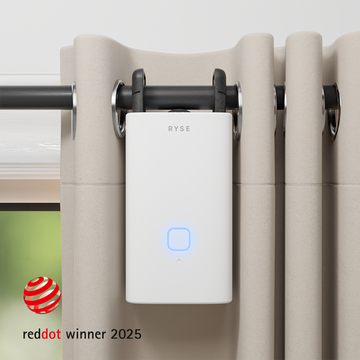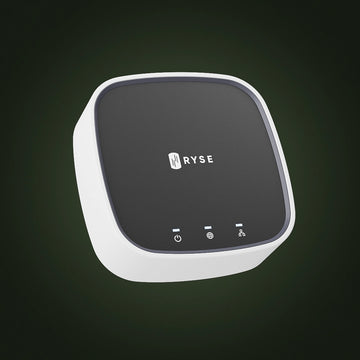You know those mornings when you wake up feeling like you barely slept, even after a full eight hours? Chances are, you weren’t getting enough deep sleep.
Deep sleep isn’t just about rest. It’s the time when your body does its most important work: repairing muscles, strengthening your immune system, and organizing the memories and information your brain took in that day. It’s the kind of sleep that makes you feel sharp, clear, and energized the next morning.
But for many of us, it’s also the hardest stage to reach and the easiest to interrupt.
The good news? You don’t need to change your lifestyle to sleep better. A few smart changes in your bedroom, especially light, sound, and temperature can create the perfect setting for deeper, more restorative rest. Let’s look at what deep sleep is, why it matters, and how you can build a sleep environment that helps you get more of it.
What Is Deep Sleep & Why it Matters?
Deep sleep, also known as slow-wave sleep, is the most restorative phase of your sleep cycle. It typically happens during the first half of the night and plays a vital role in:
-
Memory consolidation
-
Tissue growth and repair
-
Hormonal regulation
-
Immune function
Without enough deep sleep, you may sleep for 8 hours and still wake up feeling unfocused and low on energy.
Unfortunately, deep sleep is easily disrupted by light, noise, inconsistent sleep schedules, or a warm bedroom. That’s why creating a sleep-supportive environment is so important.
How Light, Sound, and Temperature Affect Deep Sleep
Light: Your Brain’s Natural Sleep Switch
Your circadian rhythm relies on darkness to signal melatonin production. If you’re exposed to blue light (from phones or LEDs) or ambient light (from outside), your body may delay or reduce the onset of deep sleep.
Smart Solution:
-
Install RYSE SmartShades to block out external light completely.
-
Automate them to close before bedtime and open gradually in the morning supporting natural melatonin cycles.
Sound: Subtle Noises Can Fragment Sleep
Even low-level background noise (traffic, neighbour's, pets) can pull you out of deep sleep, reducing its overall quality.
Smart Solution:
-
Use white noise machines, nature soundscapes, or smart speakers to mask unpredictable sounds.
-
Combine with heavy curtains or smart shades to buffer street noise.
Temperature: Too Hot = Too Shallow
Your body needs to cool down slightly to fall into deep sleep. A warm or fluctuating room temperature can delay this process and reduce total time spent in deep sleep.
Smart Solution:
-
Use a smart thermostat to maintain 60–67°F (15–19°C).
-
Block late-day heat using smart shades to keep your room cooler into the night.
How RYSE SmartShades Help You Sleep Deeper
RYSE SmartShades work with your biology to protect your deep sleep cycles.
Evening protection: Shades close automatically as the sun sets, blocking the blue-spectrum light that suppresses melatonin, whether you remember to do it or not.
Uninterrupted darkness: No streetlights at 2 a.m., no early sunrise pulling you out of restorative sleep before your alarm.
Natural wake-up: Shades gradually open to let in morning light, signaling your brain to naturally end sleep, no jarring alarm needed.
The real advantage over blackout curtains? Consistency without effort. You don't have to remember to close them every night or drag yourself out of bed to open them each morning. RYSE removes the friction, so you'll actually stick with the routine.
Frequently Asked Questions (FAQs)
1. How much deep sleep should I be getting each night?
Adults typically get 1–2 hours of deep sleep per night, depending on total sleep time. It decreases with age but can be improved with environment and routine.
2. How do RYSE SmartShades specifically support deep sleep?
By blocking light at night and gradually reintroducing it in the morning, RYSE SmartShades help regulate melatonin production and reinforce your circadian rhythm, both of which support deeper, uninterrupted sleep.
3. Does sleeping longer mean I get more deep sleep?
Not necessarily. Deep sleep mostly happens in the first half of your night. Consistency, timing, and environment have more impact than just adding extra hours in bed.
4. Are blackout curtains as effective as smart shades?
Blackout curtains block light, but smart shades add automation, ensuring consistent darkness without relying on you to remember. That consistency is key.
5. Does temperature really affect deep sleep that much?
Absolutely. Research shows that deep sleep is highly sensitive to temperature. Cooler rooms help you fall asleep faster and stay in deeper stages longer.
6. Are there habits that boost deep sleep along with smart tech?
Definitely. Stick to a regular sleep schedule, limit screens before bed, wind down with calming activities, and avoid caffeine late in the day to reinforce your smart bedroom setup.







